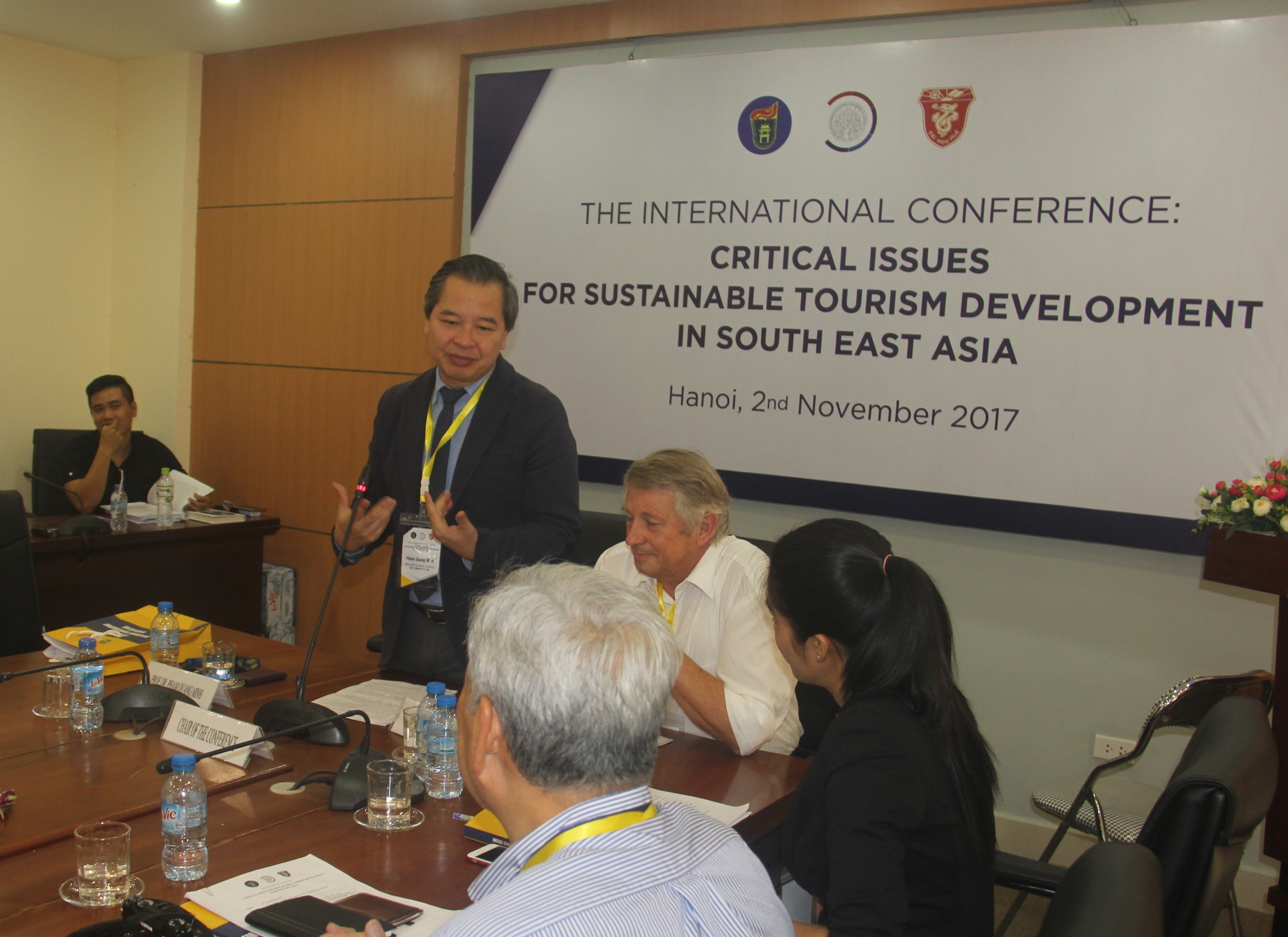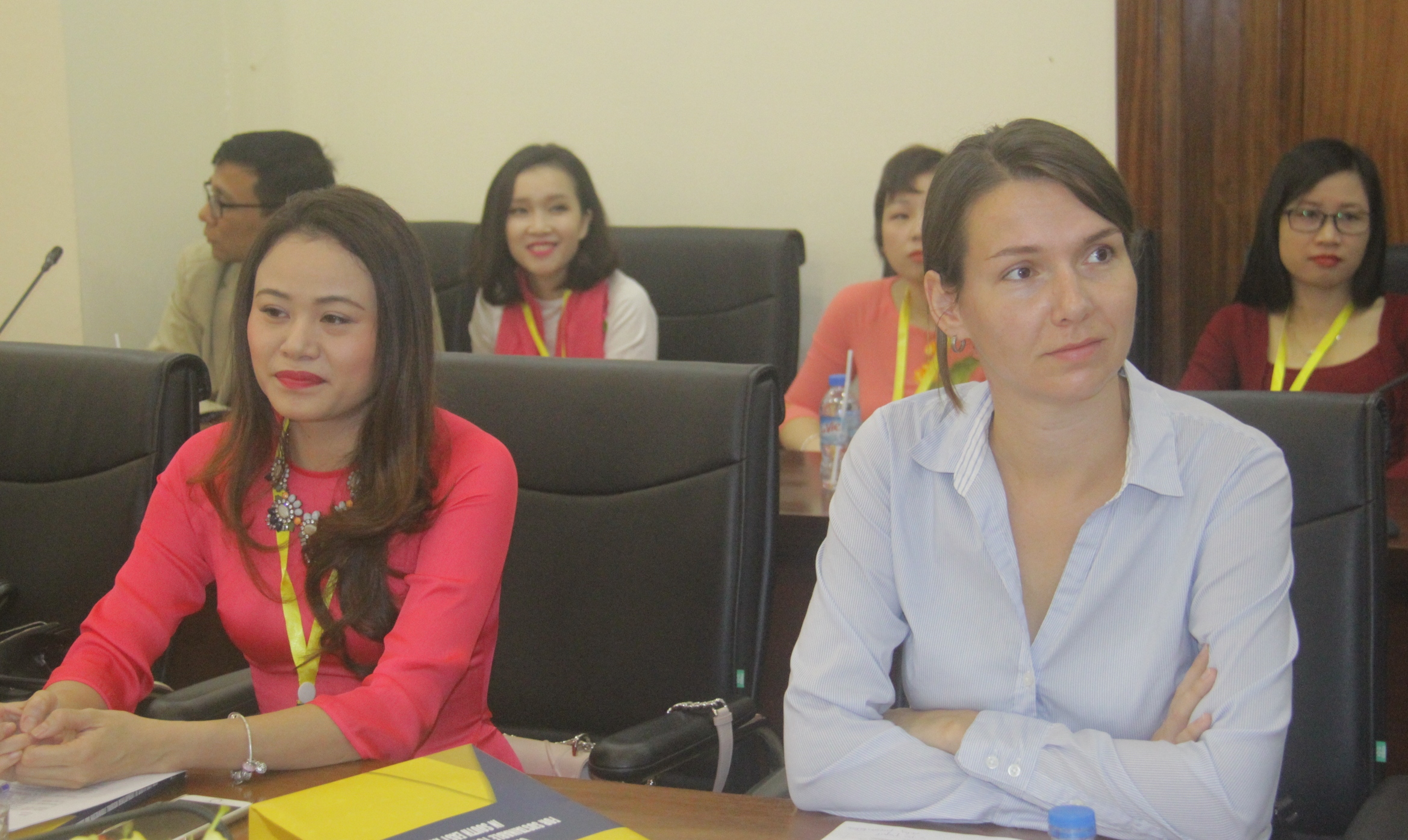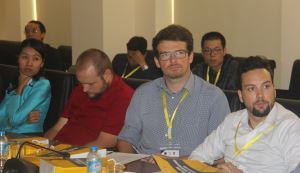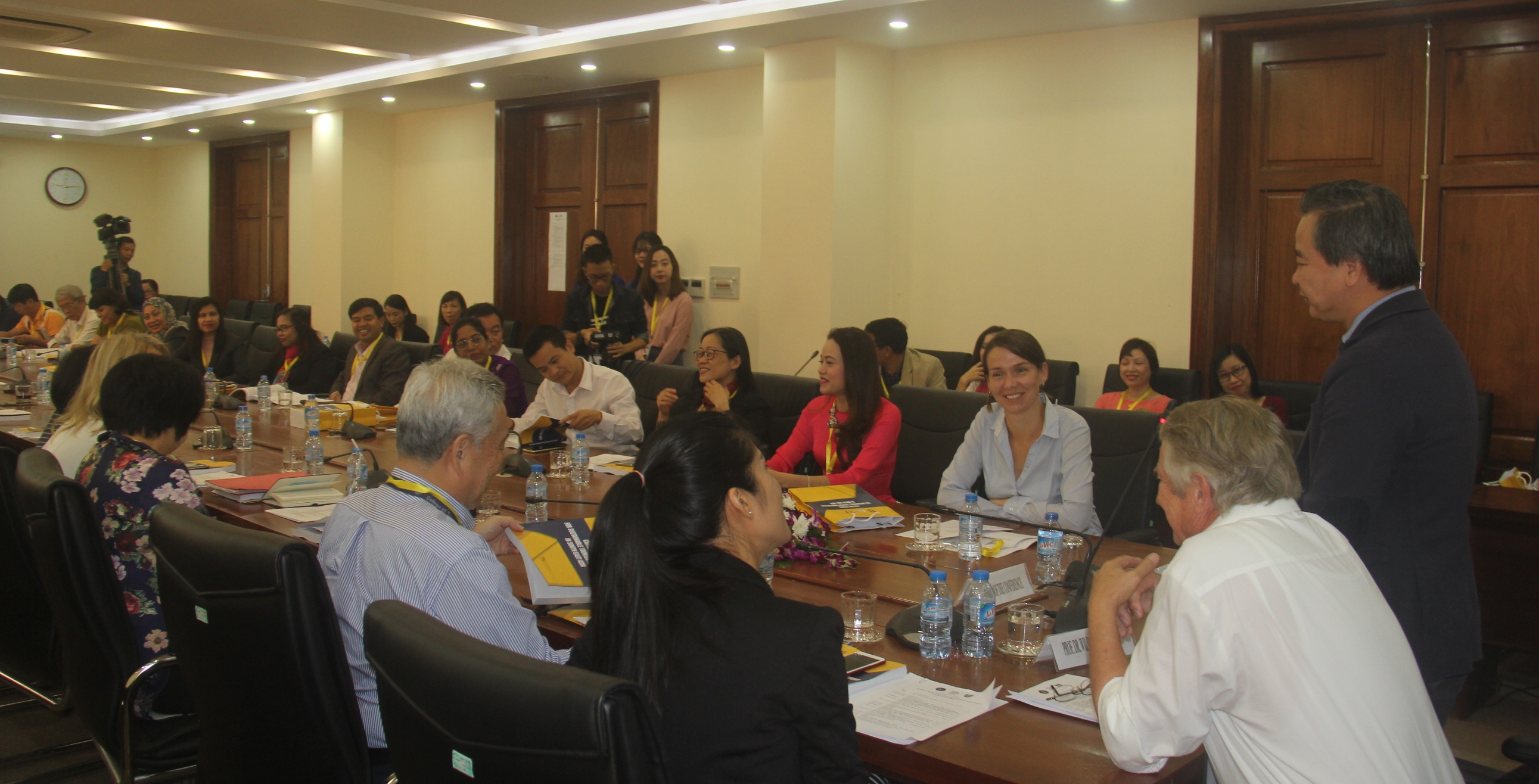Tourism development not only brings economic benefits but also contributes to poverty reduction, job creation, cultural exchange, and global integration. However, tourism development is also linked to several environmental problems, such as increased waste, air pollution, and climate change. Furthermore, the increase in social ills such as prostitution and theft is also linked to the increase in domestic and international tourists. Concerns about the degradation of tourism development have led to particular attention on sustainable tourism development in recent times. In Southeast Asia, along with the rapid tourism growth in all countries in the region, the issue of sustainable tourism development has been addressed early on and has been thoroughly researched...

Professor Pham Quang Minh (Rector of the University) delivered a welcoming speech to the guests attending the conference.
The international conference, held at the University of Social Sciences and Humanities, aimed to create an academic forum for researchers, educators, government officials, tourism professionals, and others to discuss, broaden understanding, share empirical research, and provide advice on the field of sustainable tourism development. The focus of the conference was to clarify the current situation and discuss key issues concerning sustainable tourism in Southeast Asia, including the context, challenges, limitations, and collaboration among stakeholders. Solutions, implications, and advisory activities were also proposed based on these findings. The conference brought together keynote speakers from universities as well as leading individuals in the tourism and travel industry. While all Southeast Asian countries are currently at very different stages in the tourism-life cycle, all face problems caused by local and/or international tourism.

The presentations offered distinctly regional, even local, perspectives on the problems related to this growth and outlined how local stakeholders could address them. The content reflected various social, ecological, and economic aspects of (sustainable) tourism. Some notable presentations included:Towards sustainable tourism development in southern Shan State - A case study of Kalaw as a tourist destination; Cultural heritage and sustainable tourism.:A comparative study between Luang Prabang and Hoi An; The rise of Russian-language tourism economy in Nha Trang, Vietnam.;Comparative analysis - approaches and strategies for sustainable tourism.:Community-based tourism initiatives in rural areas…

Tourism is not just a business, but also a social and environmental activity affecting many people in different regions of the world. Through this workshop, some of the challenges facing tourism in Southeast Asia today were clarified, and several case studies of successful sustainable tourism practices were presented. Many presentations highlighted unresolved issues – therefore, there is still a long way to go towards sustainable tourism development worldwide, not just in Southeast Asia. The workshop contributed new ways of thinking and acting for all stakeholders to identify, change, or mitigate negative impacts, moving towards sustainable tourism development.

Author:Thanh Ha
Newer news
Older news